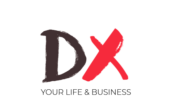I will forever be grateful from learning this information. Most small business owners rely on profit & loss or income statement or at times just the bank statement when reviewing their financial status. Here\’s why:
– because its simpler, more intuitive and allows immediate and actionable insights especially for someone without background in finance or accounting
– small business owners may be more focused on day-to-day operations and short-term financial goals and immediate survival, thus giving more emphasis to revenue and expense management reflected in the P&L.
– lastly might not fully understand the importance and utilization of balance sheet.
Overlooking the balance sheet can have several adverse consequences, as it can hide underlying financial problems like accumulating debt, deteriorating asset values, or diminishing equity base.
Even if a business appears profitable on the P&L, but your revenue are mostly in receivables or it could still be accumulating liabilities or potentially leading to insolvency in the long run.
By establishing and analyzing the balance sheet, you\’ll know your cash position, receivables and things you own, what your business owes and net worth. You\’ll see your working capital and liquidity. You\’ll get loan approval and attract investors.
In general, it is crucial for assessing the solvency or your business. Neglecting the balance sheet can lead to poor financial management and unforeseen financial troubles, even for seemingly profitable businesses.
